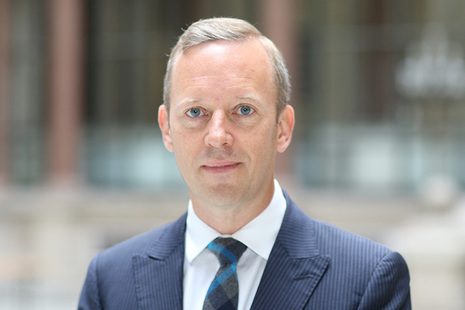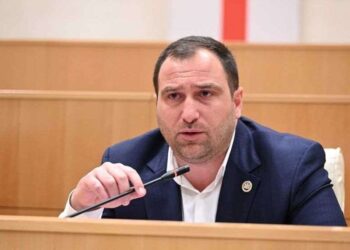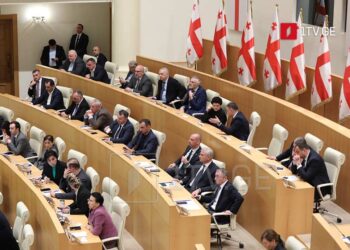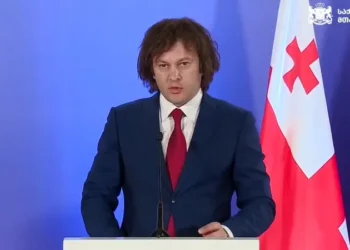On January 23, British Ambassador to Georgia, Gareth Ward, provided insight into the UK’s position on the ongoing political crisis in Georgia during an address to journalists at a Vodafone Group event. While refraining from commenting on the possibility of future sanctions, Ambassador Ward reaffirmed that the UK’s current measures are designed to protect fundamental freedoms in Georgia, particularly the right to protest and freedom of expression.
“The key thing is that we want to see the right to protest and freedom of expression protected in Georgia. That’s the objective of the sanctions,” Ward emphasized. He went on to explain that the UK’s decision to halt funding for Georgian government programs and restrict defense and political contacts with the Georgian authorities will remain in place until the government addresses concerns over democratic backsliding.
This position, originally announced in December, remains unchanged, Ward confirmed. Despite these restrictions, the Ambassador highlighted positive developments, including the launch of direct flights between London and Tbilisi by British Airways and EasyJet, starting in March. Ward expressed the UK’s support for Georgia’s economic success and anticipated that the new flight routes would enhance economic ties between the two nations.
In his remarks, Ambassador Ward also acknowledged the critical role of Georgia’s civil society in promoting democracy and European values. While the UK will limit its engagement with the Georgian Dream (GD) government, Ward assured that the UK will continue to provide economic assistance directed at strengthening Georgia’s civil society. He described this sector as “hugely important” to the development of any democratic society.
Ward’s statements follow the introduction of an Early Day Motion (EDM) in the UK Parliament by MP James MacCleary, which calls for sanctions against Bidzina Ivanishvili, the honorary chair of Georgia’s ruling party, Georgian Dream. The motion accuses Ivanishvili of contributing to Georgia’s democratic regression and has garnered support from 13 MPs.
Additionally, the UK has already implemented targeted measures against senior Georgian officials, including asset freezes and travel bans on five individuals, such as Interior Minister Vakhtang Gomelauri, in response to their involvement in serious human rights violations. These sanctions have specifically targeted those accused of repressing peaceful protesters, journalists, and opposition figures in Georgia.
As the situation in Georgia continues to evolve, the UK’s stance remains focused on defending democratic principles and supporting the civil society that plays a pivotal role in shaping the country’s future.














